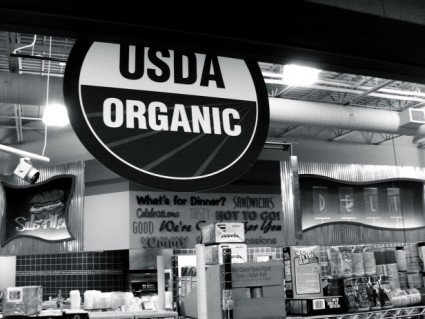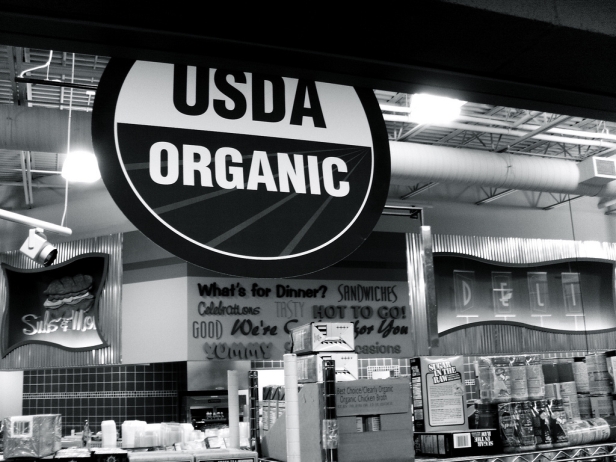 Organic and the mega-market: an uncomfortable fit? Photo: Tim Psych on FlickrIs organic ag doomed to permanent niche status? Yes, according to this report from the Reuters Food and Agriculture Summit in Chicago.
Organic and the mega-market: an uncomfortable fit? Photo: Tim Psych on FlickrIs organic ag doomed to permanent niche status? Yes, according to this report from the Reuters Food and Agriculture Summit in Chicago.
Based on the article, the summit appears to have been a gathering of food-industry execs and Wall Street analysts. And for this crew, evidently, organic’s days of world-conquering growth are over. From the article:
The recession put a halt to the double-digit sales growth organic foods saw earlier last decade. But even when the economy improves, organics are not likely to rebound to such lofty heights as consumers and retailers now have other priorities for spending and shelf space.
But the topic here turns out to be not so much about the future of organic ag as about the difficulty of turning organic ag into corporate profit. In short, after years of fascination with organic as one of the food industry’s few robust growth areas, Wall Street and Big Food seem to be quite over it–and they’re pulling out some choice jargon to show it:
“It’s hard if you are a big company to do things that move the needle in that space,” said Greg Pearlman, managing director and head of the U.S. food and consumer group for BMO Capital Markets. While Pearlman expects 2010 to be an active year for deals in the food industry, he did not see a big play for manufacturers in the organic space.
Oh-oh. They’re having a hard time “moving the needle,” and can foresee no “big plays” this year. Disaster! So where are they looking for growth now? For one, through labels that vaguely hint at organic-ish values, but without all the inconvenience of rules and regulation. As an analyst from the bank Wells Fargo put it, “We’re seeing a lot of conventional companies fighting back with ‘organic light.'”
What seems to be upsetting these people isn’t that sales of organic produce are slowing; it’s that sales of organic processed foods are slowing–dramatically. From the article:
During the 52 weeks ending February 20, supermarket sales of packaged foods and nonalcoholic beverages with “organic” claims rose 1.9 percent to $4.4 billion, according to Nielsen data. That compares with an 11.7 percent increase the prior year, and increases of 24.5 percent in the period ending in 2008 and 29.1 percent in the period ending in 2007.
Meanwhile, my beloved meat industry seems to have concluded that organic and even “natural” just don’t jibe with the industrial/CAFO model:
“The problem with that is every grocery store sells such a very small amount of it,” said Joe Sanderson, CEO of poultry producer Sanderson Farms (SAFM.O), referring to “naturally raised” chicken, which he called a “niche” market. “They get a premium price for it, but … most of the people that buy that product want boneless breast. And what do you do with the rest of the chicken?” he said.
That’s weird. At most farmers markets I know of, whole chickens sell briskly, as do flavorfull cuts like bone-in thighs. And of course, it’s supermarkets and fast-food joints that have taught people to fixate on boneless cuts.
As for the mighty beef industry, it’s evidently decided to say “the hell with it” to organic.
The natural/organic segment is “always going to be a niche,” said Forrest Roberts, CEO of the National Cattlemen’s Beef Association, an industry trade group. He said organic and natural beef sales make up less than 2 percent of the market.
If the food industry is indeed turning away from organic, I don’t much care. I suppose I’m happy when people choose organic mac ‘n cheese over Kraft’s plastic version; but what the sustainable-food movement really needs to work on is creating new food economies that build wealth and health within communities–benefitting farmers and consumers alike. Such solutions can’t be found be found in the organic section of some vast supermarket.




